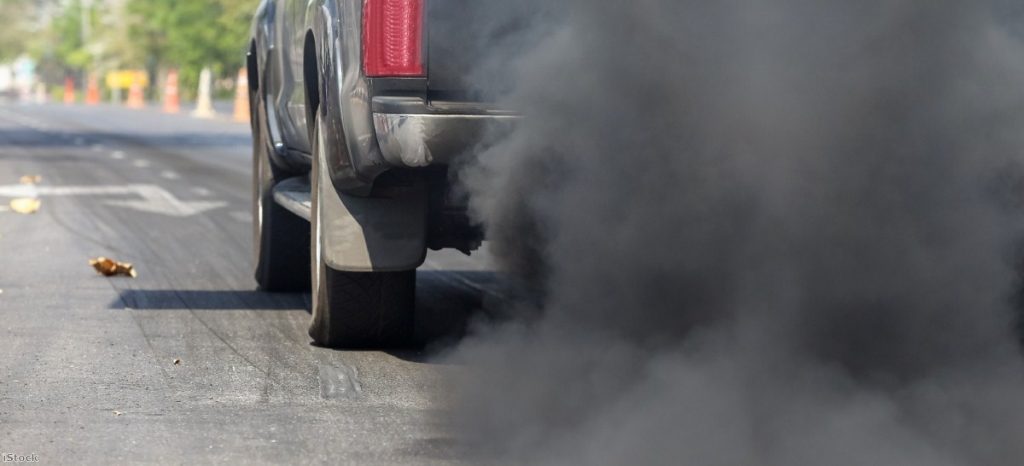By Jenny Bates
It’s widely known that the NHS is in danger, fighting off problems caused by a dangerous trinity of cuts, underinvestment and privatisation. A £20 billion extra investment over the next four years is much needed and some reports suggest it could be raised by finally ending the eight-year freeze on fuel duty.
This would be a sensible way of securing the necessary cash, but it makes broader sense on its own terms.
Dirty air leads to innumerable health complications, including worsening asthma symptoms, heart disease and lung cancer. It has been associated with changes in the brain linked to dementia and to children growing up with smaller lungs.


The overall cost from air pollution to individuals and society – including the extra burden on the health service and reduced productivity from days off sick – is estimated at more than £20 billion a year. Pollution from cars and vans alone is responsible for £6 billion in health damages.
Road transport is the major source of the toxic gas nitrogen dioxide in the air we breathe. Vehicles also produce tiny particles, known as particulate matter (PMs), that find their way deep into our lungs and our bloodstream.
Higher fuel duty can deter road use, allow greater investment in public transport, cycling and walking routes and facilitate the transition towards electric vehicles by installing thousands more charging points. This would, in turn, lead to cleaner air and fewer adverse health outcomes, saving more money for NHS. It's the kind of thing a society does if it is thinking ahead.
Critics say that fuel duty hits the poorest hardest. There's a truth to that. But the poorest also benefit most from action on air pollution, as they tend to live in the most polluted places in towns and cities, near the busiest roads.
The government’s plan to increase fuel duty needs to go hand in hand with intelligent investment in reliable and affordable public transport, as well as improved infrastructure to make walking and cycling a safe and enjoyable way to get around. Active travel would also boost people's wider health and reduce the burden on the NHS.
The health case against the internal combustion engine is clear. It should be confined to the history books in the same way as lead paint, asbestos or smoking on aeroplanes.
Jenny Bates is a clean air campaigner at Friends of the Earth. You can follow her on Twitter @BatesJenny.
The opinions in politics.co.uk's Comment and Analysis section are those of the author and are no reflection of the views of the website or its owners.












